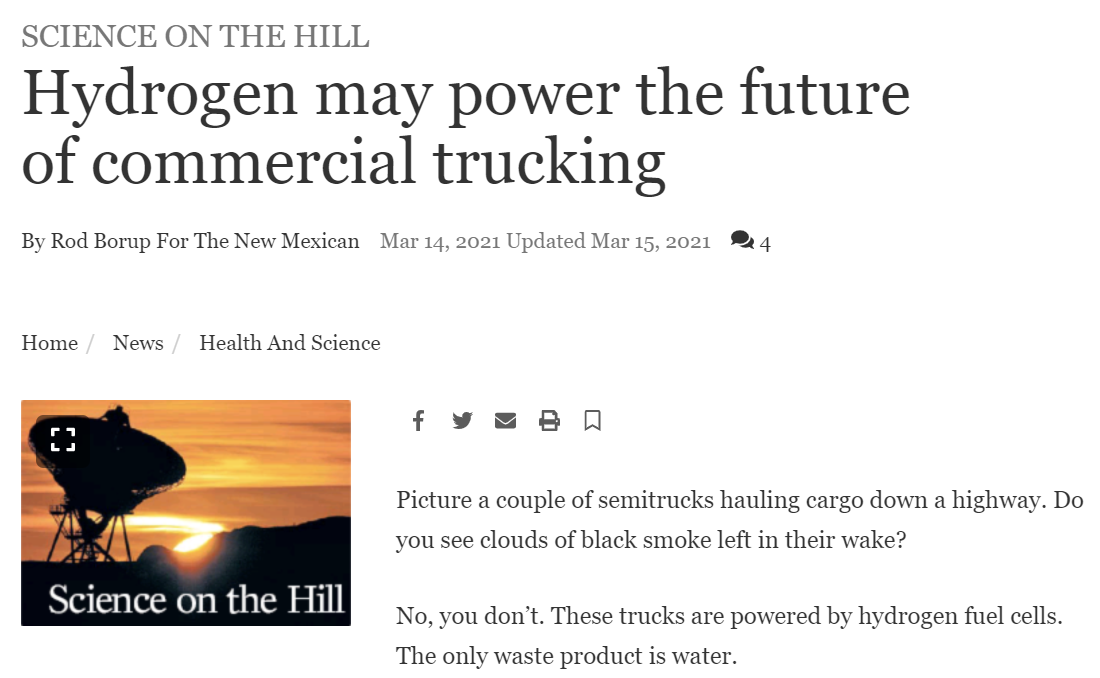M2FCT News
The U.S. Department of Energy's (DOE's) Energy Earthshots Initiative aims to accelerate breakthroughs of more abundant, affordable, and reliable clean energy solutions within the decade.
The first Energy Earthshot, launched June 7, 2021—Hydrogen Shot—seeks to reduce the cost of clean hydrogen by 80% to $1 per 1 kilogram in 1 decade ("1 1 1")
The U.S. Department of Energy (DOE) Hydrogen Shot Summit convened thousands of stakeholders online to introduce the Hydrogen Shot, solicit dialogue, and rally the global community on the urgency of tackling the climate crisis through concrete actions and innovation. The Hydrogen Shot Summit was held virtually August 31 and September 1, 2021.

An Albuquerque Journal article on the role of hydrogen fuel cells for powering trucks, by Rod Borup, the co-director of the M2FCT Consortium and Los Alamos National Laboratory’s program manager for hydrogen and fuel cells. Read the article in the Albuquerque Journal
Congratulations to Siddharth Komini Babu (Los Alamos National Lab); winner of the 2021-2022 ECS Toyota Young Investigator Fellowships for Projects in Green Energy Technology.
This week, Switched On speaks with U.S. Energy Secretary Jennifer Granholm, who was sworn into office on February 25th. One of Secretary Granholm's objectives at the Department of Energy will be to set the U.S. on a path to achieving President Biden’s goal of net-zero carbon emissions from the power sector by 2035 by advancing cutting-edge clean energy technologies, and creating millions of clean energy jobs.
Million-Mile Fuel Cell Truck Consortium and their research on developing the state of hydrogen fuel-cell technology for heavy-duty vehicle applications have been highlighted in an article by Oak Ridge National Lab.
National labs M2FCT researchers outline prospects and challenges for hydrogen fuel-cells in heavy-duty transportation
Rod Borup, the co-director of the Million Mile Fuel Cell Truck and Los Alamos National Laboratory’s program manager for fuel cells and vehicle technology, contributed to an article on the New Mexican's Science on the Hill section. The article discusses the current state and the future of fuel-cell-powered clean trucks, their positive impact on the environment, and their advantages over diesel trucks.
